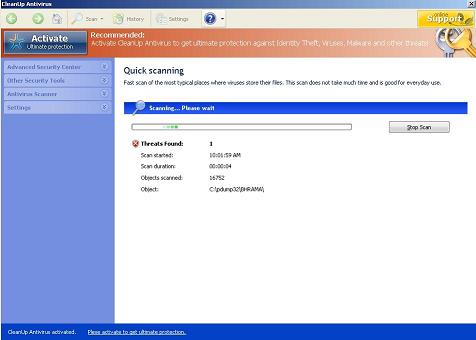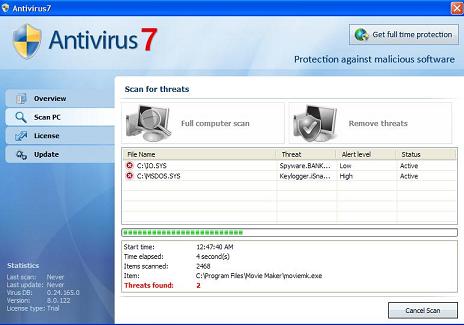Lavasoft Blog
For those following the news which broke in January of the cyber attacks against Google – believed to be originating from China – and Google’s subsequent plan to stop censoring Google.cn search results, there’s been a recent update:
Today at Lavasoft, we discovered a number of new clones from the XpAntispyware2010 family of rogue security software. The unique aspect of this family is the ability to randomly change its name. Lavasoft Malware Labs found 36 different names on three operating systems (Windows XP, Windows Vista and Windows 7).
The links below lead to snapshots in the Lavasoft Rogue Gallery:
Windows XP
antispywarexp
antivirusxp
totalxpsecurity
xpdefender
xpdefenderpro
xpsecuritytool2010
xpsmartsecurity
xpsmartsecurity2010
xpantimalware
xpantimalware2010
xpsecurity
xpsecuritytool
Tax season is not a favorite time of year for most of us, but it’s drawing near in many parts of the world.
For those in the U.S., the April 15 income tax filing deadline is quickly approaching. Unfortunately, tax season has its own set of security traps that you’ll need to watch out for, with cyber scammers jumping to take advantage of the swell in online activity and the handover of personal information.
The Internet Crime Complaint Center (IC3), a partnership between the U.S. Federal Bureau of Investigation (FBI) and the U.S. National White Collar Crime Center (NW3C) that serves as a clearinghouse to triage cyber crime complaints, has released its 2009 annual Internet crime report. This year’s findings show that, once again this year, online crime complaints ‘increased substantially,’ highlighting the threat posed by cyber criminals.
From the 2009 Internet Crime Report:
CleanUpAntivirus is a new rogue anti-spyware application. It is a clone of the SmartVirusEliminator family.

In Lavasoft Malware Labs’ Internet security predictions for 2010, we listed scareware and rogue (fake) security products as a rising threat to watch out for. The money made from this malware model ensures that cyber criminals will not abandon what is a very profitable endeavor for them - meaning that this prediction will, unfortunately for users around the world, continue to ring true this year.
You may have seen the reports from last week’s RSA conference, with online crime estimates by the U.S. Federal Deposit Insurance Corporation (FDIC). According to the FDIC:
Microsoft has announced their second known zero-day vulnerability within the last 60 days. This one affects older browsers including IE6 and IE7 - it doesn't seem to affect the old IE5.01 or the current IE8. Unfortunately, a patch is not yet available, and Microsoft has not yet announced when they will release the fix.
A clone of the annoying and well spread rogue SecurityTool has now been released. It's hosted on a Russian domain and is named SmartSecurity.







